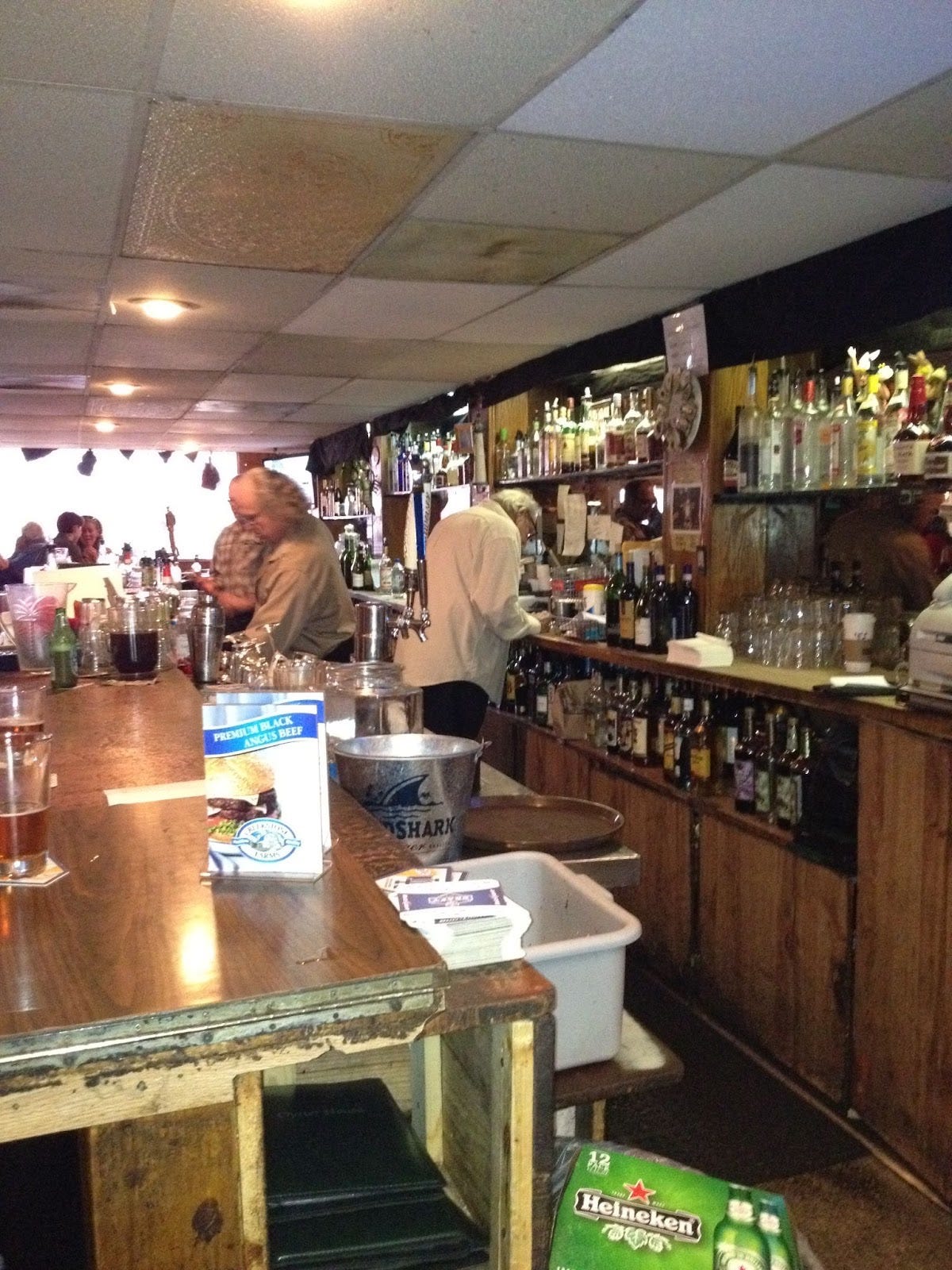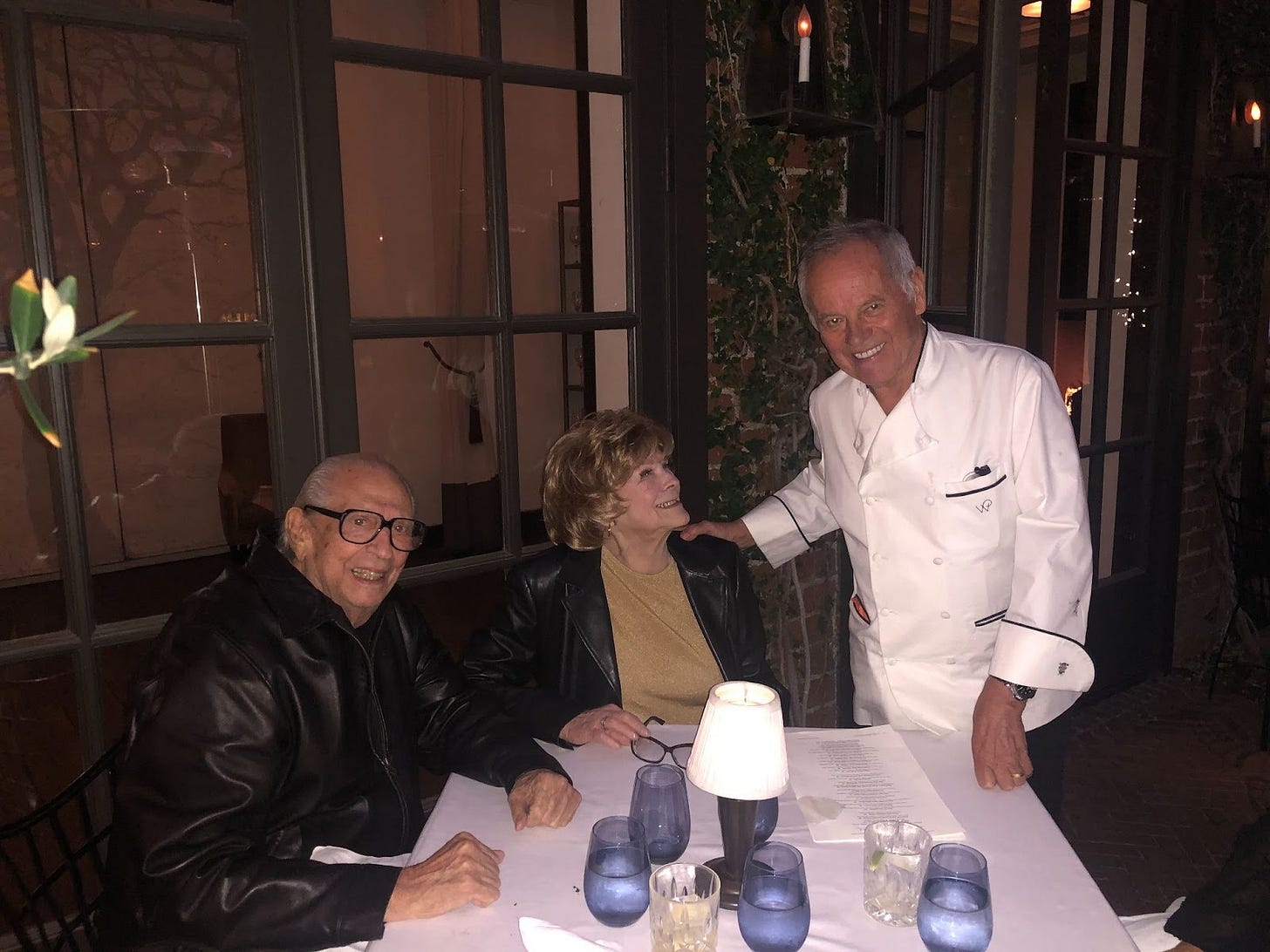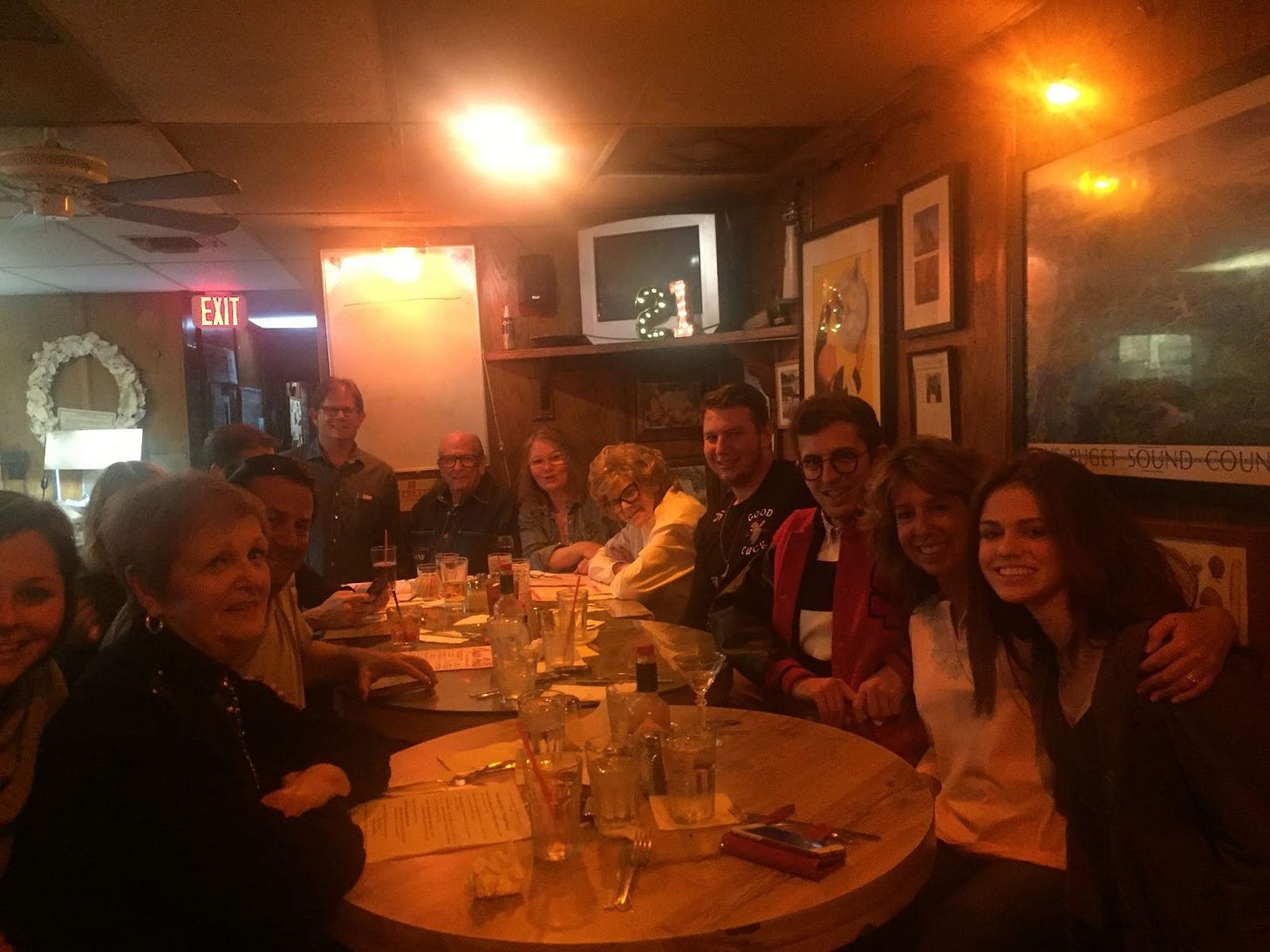My First Entrepreneur: From Bartender to Business - The Oyster House
The Man Who Did It His Way
He Did It His Way
Most entrepreneurs I write about have stories filled with pitch decks, venture capital, and scaling strategies. But sometimes the best entrepreneurial tales come from people who never set foot in a business school, never chased Silicon Valley, and never needed a LinkedIn profile.
This one’s a little different. It’s about a man who built his life and career his own way—and left behind lessons more powerful than anything you’d find in a textbook.
He used to joke, “I retired when I was about 30.” Of course, he didn’t mean it. What he meant was that once he found his lane, he never felt like he worked another day in his life.
From Bartender to Business Owner
He started out hustling in bars and restaurants, working long shifts until he saved enough to buy his own place. That’s where he realized his formula for success:
Keep things simple.
Offer good value.
Treat people well.
Make it fun.
And, yes—make a profit.
He didn’t hire Michelin-trained chefs or cocktail wizards. He found people with talent and heart. The food? Sometimes sourced from guys pulling up in trucks with fish that were probably not USDA-certified—but they were fresh, delicious, and kept the customers coming back.
The restaurant wasn’t glamorous. Two blocks off the main street to keep rent costs at least 50% less was sometimes referred to as a “hole in the wall.” Others labeled it a “greasy spoon.” But the truth is, it was alive, the food was good, drinks were strong, and everything was good value and great fun. In the early years, there was the jukebox, then some live music with a kick back patio for cigarette smokers and whatever else. The place, like its owner, definitely had character.
A War Veteran Who Brought Fun Everywhere
But keep in mind this was a man who didn’t finish high school, never went to college, and got drafted into the Korean War. While others served on the front lines, his role was keeping morale up—playing ball, entertaining, and bringing joy amid chaos. That spirit carried through his entire life.
He treated his restaurants the same way. Running a small restaurant is grueling—no layers of management, no buffer between owner and problems. He did it all: paid the bills, made the schedule, ordered the food, fixed the pipes, and restocked the bar. Oh, he had his wife handle the month (accounting/payroll).
But to him, it wasn’t work. It was his way of keeping the party going. He’d walk table to table, telling jokes, serving shots, and making people feel welcome. He’d keep rapping with the staff for hustle and flow. The funny thing is—he never drank in his own bar. And he never ate in his restaurants either. It wasn’t about indulgence for him. It was about people.
What’s Your Dad’s Job?
When I was a kid, we had to fill out those school forms: “What’s your father’s occupation?”
He’d tell me, “Entrepreneur.”
I was eight years old. I remember asking him to spell it, and then: “What does that mean?”
It’s funny, as I look back, I think I’ve been chasing the answer to that question ever since.
The Oyster House Years
His crown jewel was The Oyster House. Before that, he opened a bar called The Stop (a name so perfect: “Where should we go?” “Let’s go to The Stop”). But it was The Oyster House where he really made his mark—and maintained a great business for the majority of its 40 years, just a few miles from where he raised three kids.
The business wasn’t without challenges. As the years went on, margins shrank. Customers drank less. Lawsuits and regulations grew heavier. He used to say the fun was fading from the industry. But still, night after night, he was there—circulating the floor, making people laugh, listening to their stories. He gave empathy as easily as he gave a wink and a one-liner.
Eventually, between the pandemic and the natural end of a long career, it was time to shut it down.
A Life Well Lived
He may have closed the restaurant, but his legacy was never just about food or drink. It was about presence, humor, and connection. About being the guy who’d work the bar all night, then show up in the morning to coach Little League—even if wrangling fifteen ten-year-olds was tougher than any kitchen crew.
And perhaps the most successful part of his story wasn’t even The Oyster House at all, but the marriage that lasted 67 years—with the same woman too. His wife Rona, who also held role of CFO, Chief Scorekeeper for the Little League team, a restauranteur in her own right (The Steak Joynt - a whole ‘nother story) and more.
So let’s see, today, Dad is 94, Mom is 90. They still live in Los Angeles, occasionally running into old patrons who remember him with a smile. They’re living proof that the best entrepreneurial stories aren’t about exits or valuations. They’re about building a life filled with people, purpose, and fun.
Thanks, Mom and Dad—you set the bar kinda high.
Photo: (ToP) Game recognizes game. While one is the legendary Wolfgang Puck, there was a friendship and respect for the unique combination of grind and grit that only restaurant owners understand. (Bottom) Just another group of happy Oyster House customers enjoying one of the last “big nights” at the ol Joynt.
Thanks, Mom and Dad
When I think about what it means to be an entrepreneur, I think about my dad—someone who built a life on his own terms, without ever calling it a sacrifice.
Thanks, Mom and Dad, for being the role models you are—not just in work, but in love, family, and joy.







You have to read this amazing and inspiring story: 🍸 From Bartender to Business Owner - The Oyster House
He started out hustling behind the bar, saving every dime until he could buy his own place. That’s where he discovered his simple formula for success:
- Keep things simple
- Offer good value
- Treat people well
- Make it fun
- And, yes — make a profit
No Michelin stars. No fancy investors. Just fresh food, good vibes, and community. Two blocks off Main Street, “The Oyster House” became a local institution — alive, loud, and full of character.
Find the full story here: https://lnkd.in/g4J45-Az
What a heartwarmer of a post this is. This isn’t your typical founder-fuelled success story and that’s exactly why it sticks. There’s something deeply grounding about a life built not on pitch decks or platforms, but on presence. A reminder that entrepreneurship isn’t always about scale, it’s often about soul. And legacy? It's not measured in margins but in memories. You can feel the warmth of that bar, the rhythm of the jukebox, and the quiet pride behind the scenes.